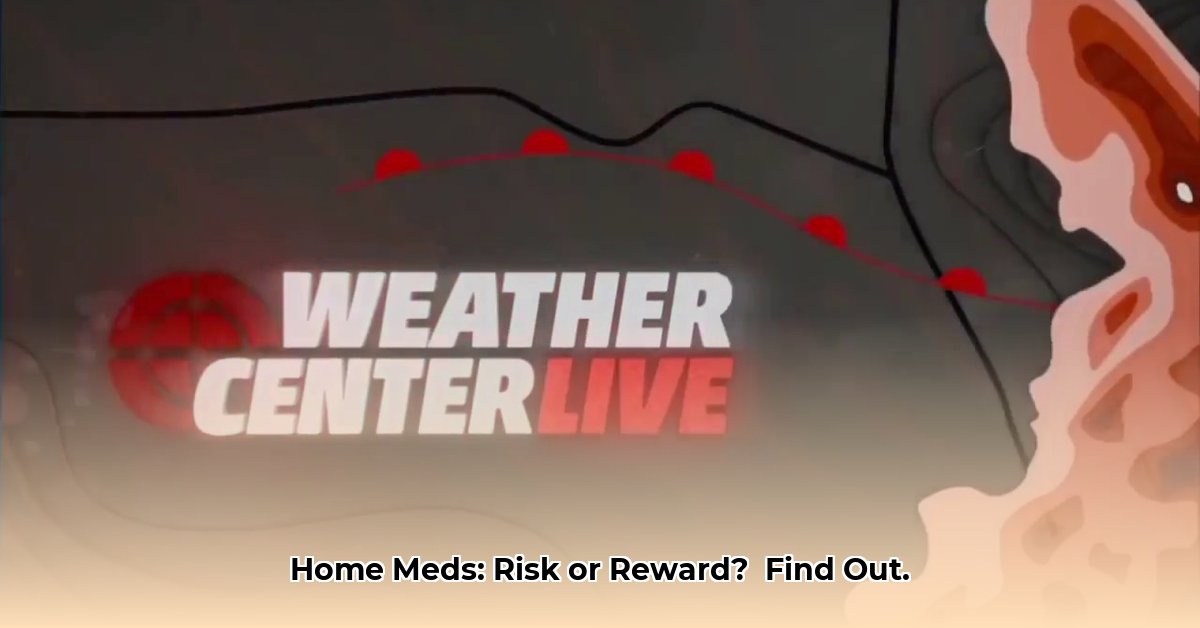
TWC Health: At-Home Medical Kits – A Closer Look
TWC Health offers direct-to-consumer (DTC) emergency medical kits containing prescription medications, promising convenient access to treatment for common ailments. This convenience, however, raises significant concerns regarding safety, efficacy, and legal compliance. This article analyzes the potential benefits and serious risks associated with TWC Health’s model.
What's in the TWC Health Kit, and What Does it Claim to Do?
TWC Health kits include antibiotics (azithromycin, doxycycline), antiparasitic drugs (notably ivermectin), and a guidebook. The company claims these kits can treat over 30 common illnesses. While offering purported convenience and increased access to medication, particularly in underserved areas, these claims lack substantial independent scientific verification. Is this convenience worth the potential risks?
The Legal Landscape: Navigating the Regulatory Maze
Selling prescription drugs DTC presents significant legal challenges. The FDA (Food and Drug Administration) regulates prescription drug dispensing, and circumventing these regulations poses substantial risk. Critical questions remain: Does TWC Health possess all necessary federal and state licenses and approvals? Have they fully complied with all FDA regulations? Transparency regarding the qualifications of healthcare professionals involved in prescribing through their online platform is crucial. Without this, assessing legal compliance is impossible. The FDA’s stringent regulations are designed to ensure safe and effective medication use; bypassing them could have severe health consequences. A thorough investigation into TWC Health's compliance is urgently needed.
Does the Science Stack Up? Evaluating the Effectiveness and Safety
TWC Health's claim of treating over 30 illnesses lacks independent verification. Reliable clinical trials or peer-reviewed research supporting these claims are absent—a significant red flag. The inclusion of ivermectin is especially controversial, its efficacy against viral infections remaining debated. While possessing some proven uses, its potential side effects necessitate careful medical supervision, not self-prescription. How TWC Health manages refills, particularly for controlled substances, also requires clarification.
The Ethical Tightrope: Balancing Access and Responsibility
DTC prescription medication sales eliminate vital physician oversight, creating significant ethical concerns. Are we comfortable with increased self-medication? Could this lead to misuse or dangerous drug interactions? The lack of physician supervision increases risks of misdiagnosis, inappropriate dosages, or adverse drug interactions. This convenience potentially comes at a high cost.
Key Risk Assessment Matrix:
| Risk Factor | Probability (Estimated) | Impact (Severity) | Potential Mitigation Strategies |
|---|---|---|---|
| Regulatory Non-Compliance | High | Catastrophic | Full transparency of licensing, strict adherence to regulations |
| Inappropriate Ivermectin Use | Moderate | Moderate to High | Clear guidance, warnings on contraindications, physician consultation |
| Supply Chain Disruptions | Moderate | Moderate | Diversified sourcing, robust inventory management |
| Lack of Physician Oversight | High | High | Strong encouragement for physician consultation, clear disclaimers |
A Word to Consumers: Prioritize Your Health
Consult your physician before considering any at-home medical kit containing prescription drugs. Discuss your health needs and potential risks. Verify TWC Health’s healthcare provider credentials. Don't rely solely on a kit; it’s a tool, not a replacement for professional medical advice.
The Final Verdict: Proceed with Extreme Caution
While TWC Health’s model offers potential convenience, significant regulatory, ethical, and safety concerns overshadow these benefits. Until full transparency, rigorous clinical data, and regulatory compliance are achieved, potential users should proceed with extreme caution. The potential benefits must be weighed against the substantial risks.
How to Legally Sell Prescription Medication in a Direct-to-Consumer Emergency Kit
Selling prescription drugs DTC is incredibly challenging. Strict FDA and DEA regulations govern drug approval, manufacturing, distribution, and dispensing. State-level regulations add further complexity. Ethical considerations, including the absence of physician oversight and potential for misuse, further complicate matters. Navigating this legal and regulatory framework is extremely challenging, making DTC sales of prescription medications practically insurmountable for most. Focusing on providing readily available non-prescription medications and first aid supplies is a far more feasible and safer approach.
Key Takeaways:
- Strict adherence to FDA and DEA regulations is mandatory for DTC sales of prescription medication.
- State licensing requirements vary significantly.
- Independent verification and rigorous testing are crucial to address clinical efficacy and safety concerns.
- Ethical considerations require patient education and responsible drug access, even within a physician’s care.
- Successfully navigating the legal framework for DTC emergency kits is exceptionally challenging.